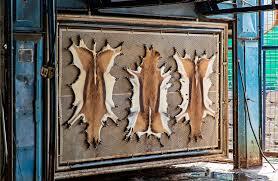This study, conducted by a doctoral student at UNU-FLORES, with the aim to explore the integration of natural capital accounting (NCA) into business operations, with a focus on the leather tannery sector. NCA has gained global recognition as a critical tool for understanding the relationship between business and the environment. Originating in the 1970s and developed by ecological economists in the 1990s, NCA assesses the impact and dependence of businesses on natural resources, guiding decision-making and sustainability efforts. The study examines how businesses, particularly in Namibia’s biodiversity economy, can utilize NCA to evaluate their environmental impacts and dependencies. Through case studies grounded in natural capital protocols, the research highlights the intricate connections between business operations and ecosystem services. These insights provide a framework for companies to integrate environmental considerations into their practices, helping to mitigate risks, enhance operational efficiency, and support sustainable growth.
By applying NCA, businesses can not only reduce their environmental footprint but also foster long-term profitability. The study's objectives are to demonstrate how sustainable practices can improve resource management, cost efficiency, and resilience within the leather tannery industry. The research employs a four-phase framework (Why, what, How, and What Next) to illustrate how NCA can be practically applied, emphasizing the importance of reducing environmental degradation while ensuring business success in the long run.
The Role of NCA in Business Sustainability
Integrating Natural Capital Accounting (NCA) into business operations extends beyond merely reducing environmental harm; it emphasises improving efficiency and sustainability. This case study of Nakara Leather (PTY) Ltd demonstrates how NCA can be effectively employed to align business practices with environmental responsibility. As a Namibian tannery, Nakara Leather serves as a pilot project for implementing the Natural Capital Protocol (NCP) and Material Flow Cost Accounting (MFCA) within its operations. The project's primary aim was to examine the usage of environmental resources in the tanning industry through the NCA framework. By quantifying essential ecological assets such as water, energy, land, and biodiversity and assessing the impacts of production processes on these resources, Nakara Leather can make well-informed decisions that benefit both the business and the environment.
Objectives of the Nakara Leather Case Study
- Evaluate the company's reliance on natural resources such as water, energy, and raw materials while assessing environmental impacts throughout the tanning process.
- Measure resource efficiency and identify savings in materials and energy using Material Flow Cost Accounting (MFCA), focusing on opportunities to reduce waste.
- Utilise MFCA to track material flows and waste streams (solid waste, wastewater, emissions), exploring strategies to minimise waste and reduce environmental impacts toward a circular economy.
Explore the full case study by following the link provided.
Suggested citation: "Unlocking Value: A Business and Natural Capital Accounting Case Study of Nakara Leather (PTY) Ltd ," UNU-FLORES (blog), 2025-01-22, 2025, https://unu.edu/flores/blog-post/unlocking-value-business-and-natural-capital-accounting-case-study-nakara-leather.




